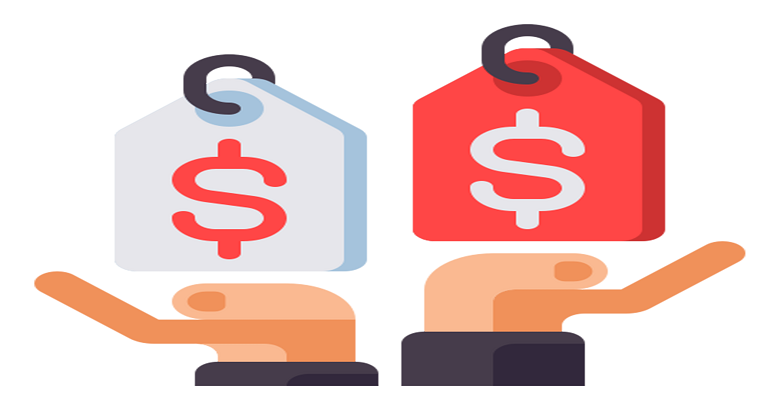In recent years, audiobooks have surged in popularity, becoming a staple for book lovers who enjoy the convenience of listening on the go. However, as with any form of media, cost is a significant consumer factor. Understanding the average audiobook price involves examining various factors, including production costs, distribution methods, and pricing models. Let’s explore these aspects to better understand what you might expect to pay for an audiobook.
Factors Influencing Audiobook Prices
Production Costs
Producing an audiobook involves several stages, each contributing to the overall cost:
- Narration: Hiring a professional narrator can be expensive, especially if the book is lengthy or requires multiple voices. Well-known narrators or celebrity voices can command higher fees, adding to the production cost. The quality of narration can significantly impact the listening experience, often justifying the higher price for top-tier talent.
- Editing and Post-Production: Audiobooks require meticulous editing to ensure high-quality sound. This process includes removing errors, balancing audio levels, and adding necessary sound effects or music. High production standards can enhance the listener’s experience, but they also increase costs.
- Rights and Licensing: Authors and publishers must secure the rights to produce an audiobook. This can involve additional fees, especially if the work includes copyrighted material such as music or excerpts from other texts. Licensing can vary widely in cost, impacting the final price of the audiobook.
Distribution and Platform Fees
Audiobooks are typically distributed through platforms like Audible, Apple Books, and Google Play Books. These platforms charge fees for hosting and selling audiobooks, which can affect the final price. Additionally, subscription services may offer discounts or credits, influencing how consumers perceive the cost. The competition among platforms can also lead to price variations and promotions.
Length and Complexity
The length and complexity of a book can also impact its price. Longer books require more hours of narration and editing, leading to higher production costs. Similarly, books with complex content, such as those with multiple characters or specialized terminology, may require more skilled narrators, further increasing the price. These factors are crucial in determining the value proposition of an audiobook.
Author and Publisher Decisions
Authors and publishers set the initial price based on various factors, including the book’s popularity, target audience, and competition. Popular titles or those by best-selling authors may be priced higher due to anticipated demand. Conversely, lesser-known works might be priced lower to attract more listeners. Strategic pricing decisions are essential for maximizing sales and accessibility.
Pricing Models
A La Carte Purchases
Buying audiobooks individually is a common pricing model. Prices can range from $10 to $50, depending on the factors mentioned above. Bestsellers and new releases tend to be on the higher end of the spectrum. This model allows consumers to purchase specific titles they are interested in without committing to a subscription.
Subscription Services
Services like Audible offer subscription models where users pay a monthly fee for access to a certain number of audiobooks. For example, Audible’s standard plan provides one credit per month for $14.95, which can be used to purchase any audiobook regardless of price. This model can offer substantial savings for frequent listeners and includes additional benefits such as exclusive content and discounts.
Bundled Pricing
Some platforms offer bundled pricing, where audiobooks are included as part of a larger package, like Amazon’s Kindle Unlimited. These bundles can provide access to a vast library of audiobooks for a flat monthly fee, making them cost-effective for avid readers. Bundling can encourage the exploration of new genres and authors without additional cost.
Comparing Prices Across Platforms
Audible
Audible is one of the most popular audiobook platforms, known for its extensive library and exclusive content. The platform’s pricing varies, with many audiobooks priced between $20 and $30 for non-members. However, membership offers discounts and credits that can reduce the effective cost per book. Audible also provides a range of membership plans that cater to different listening habits.
Apple Books
Apple Books sells audiobooks individually at prices comparable to those of Audible. Apple’s platform occasionally offers discounts and promotions, making it a good option for those who prefer not to commit to a subscription. The seamless integration with Apple devices enhances user experience, potentially justifying higher prices for some consumers.
Google Play Books
Google Play Books allows users to purchase audiobooks individually without a subscription. Prices are similar to those of other platforms, but Google often provides special deals and discounts, especially for new users. The flexibility of purchasing without a subscription appeals to casual listeners who don’t consume audiobooks regularly.
Other Platforms
Other platforms like Scribd and Chirp offer alternative pricing models, such as unlimited access for a monthly fee or significant discounts on selected titles. These platforms can be a cost-effective option for certain users, especially those looking for less mainstream titles. Exploring different platforms can lead to discovering unique content and savings.
Cost-Saving Tips
Sales and Promotions
Keep an eye out for sales and promotions, which can significantly reduce the cost of audiobooks. Platforms frequently offer discounts on popular titles, holiday sales, or special member pricing. Signing up for newsletters or alerts can help you stay informed about upcoming deals.
Library Apps
Many public libraries offer free access to audiobooks through apps like OverDrive and Libby. While the selection may not be as extensive as paid platforms, it’s a great way to access audiobooks without spending money. Supporting your local library can also contribute to community resources and literacy programs.
Special Membership Offers
Platforms like Audible often provide special offers for new members, such as free trials or discounted rates for the first few months. Taking advantage of these offers can help reduce costs when first exploring audiobooks. Evaluating different membership plans can help identify the best value for your needs.
Sharing and Family Plans
Some platforms offer family plans or allow account sharing, enabling multiple users to access audiobooks under a single subscription. This can be a cost-effective way for families or friends to share the expense. Understanding the terms of sharing can maximize benefits and provide a communal listening experience.
Final Thought
The average price of an audiobook can vary widely based on numerous factors, including production costs, platform fees, and pricing models. While individual purchases can range from $10 to $50, subscription services and special offers provide opportunities to save. By understanding these dynamics and exploring various platforms, listeners can find options that fit their budget and listening habits. Whether you’re a casual listener or an audiobook enthusiast, there are plenty of ways to enjoy this convenient form of storytelling without breaking the bank.
Frequently Asked Questions
1. Why do audiobooks often cost more than eBooks?
Audiobooks generally cost more than eBooks due to the additional production expenses involved. Unlike eBooks, which primarily require formatting and distribution, audiobooks need professional narration, editing, and sound engineering. Hiring skilled narrators and producing high-quality audio can significantly increase costs. Additionally, longer books require more time for recording and editing, further raising expenses. These factors are reflected in the final price, making audiobooks a more costly investment for publishers.
2. How do subscription services like Audible impact audiobook pricing?
Subscription services such as Audible influence audiobook pricing by offering a different economic model. Instead of paying per audiobook, subscribers pay a monthly fee, gaining access to credits that can be exchanged for audiobooks. This model can lower the effective cost per book for frequent listeners, as it often includes discounts and exclusive deals. Furthermore, subscription services negotiate with publishers to offer a wide range of titles, potentially affecting individual pricing strategies and making audiobooks more accessible to a broader audience.
3. Are there any hidden costs associated with audiobooks?
While the upfront cost of audiobooks is clear, there can be hidden costs, particularly when using subscription services. For instance, if a user doesn’t utilize their monthly credits, they might end up paying for unused services. Additionally, some platforms offer additional purchases like exclusive content or early access at an extra cost. It’s crucial to understand the terms of any subscription, including how credits roll over and any additional fees, to avoid unexpected expenses.
4. How does the popularity of a book affect its audiobook price?
The popularity of a book can significantly influence its audiobook price. Bestsellers and highly anticipated releases are often priced higher due to demand. Publishers anticipate that consumers are willing to pay more for popular titles, which can justify a premium price. Conversely, less popular or older titles might be discounted to attract more buyers. Price adjustments based on demand allow publishers to optimize sales and maximize revenue from popular content.
5. What role do discounts and promotions play in audiobook pricing?
Discounts and promotions play a crucial role in audiobook pricing by making audiobooks more affordable and attracting new customers. Platforms frequently offer sales on popular titles, seasonal discounts, or bundle deals, which can significantly reduce costs for consumers. These promotions encourage the exploration of new genres or authors and can lead to increased sales volume. For consumers, staying informed about ongoing promotions can lead to substantial savings and a more diverse listening experience.




